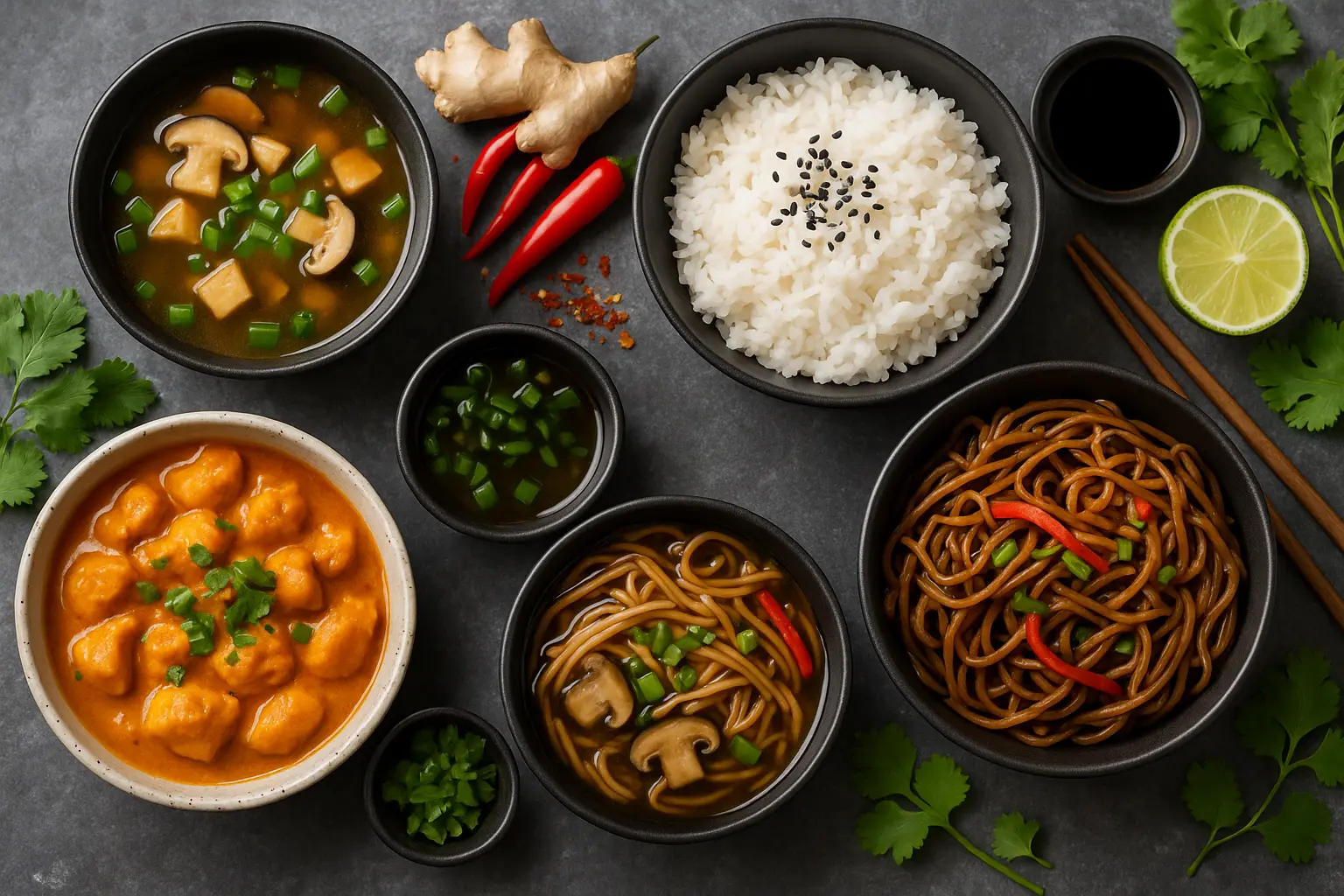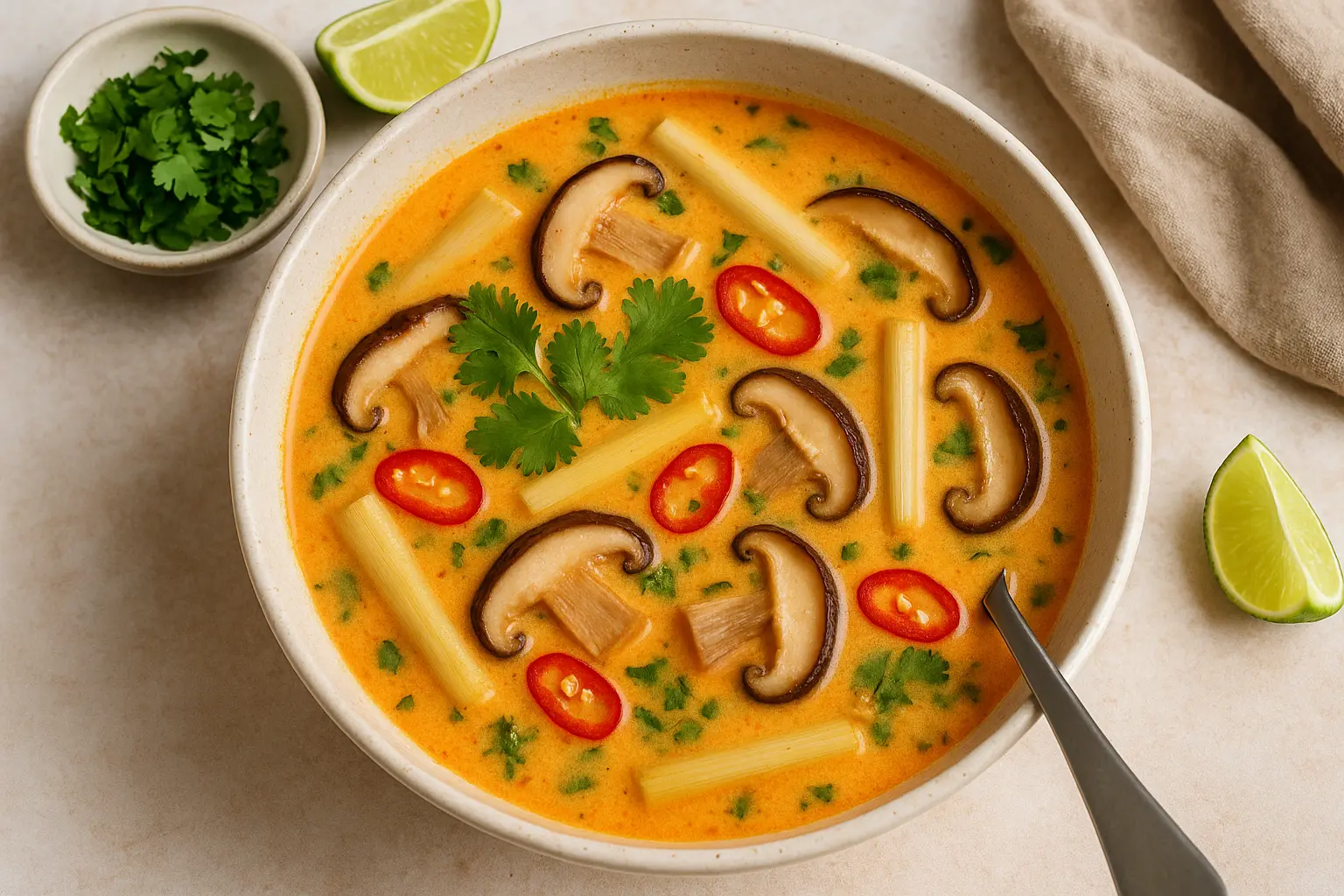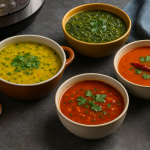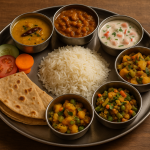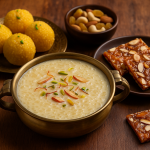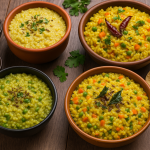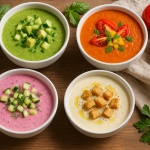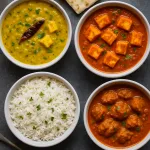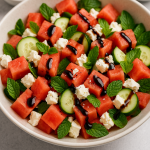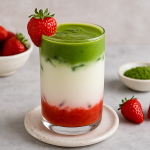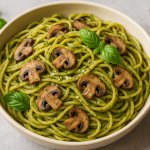Asian food has long been one of the most comforting, versatile, and flavor-rich cuisines in the world. From the umami depth of Japanese miso to the spicy kick of Thai curries, the earthy flavors of Chinese braised meats, and the aromatic richness of Indian dals, Asian cooking thrives on balance and boldness.
Yet, for home cooks, recreating these classics can be intimidating. Long simmering times, hard-to-source ingredients, or the perception that “authentic” Asian flavors require restaurant-level expertise often holds people back.
Enter the Instant Pot—a modern kitchen workhorse that takes many of these long-cooking recipes and transforms them into manageable, weeknight-friendly meals. Whether you’re a student, a parent juggling school nights, or someone just starting to explore Asian cuisines, the Instant Pot opens the door to accessible, healthier, and deeply flavorful staples.
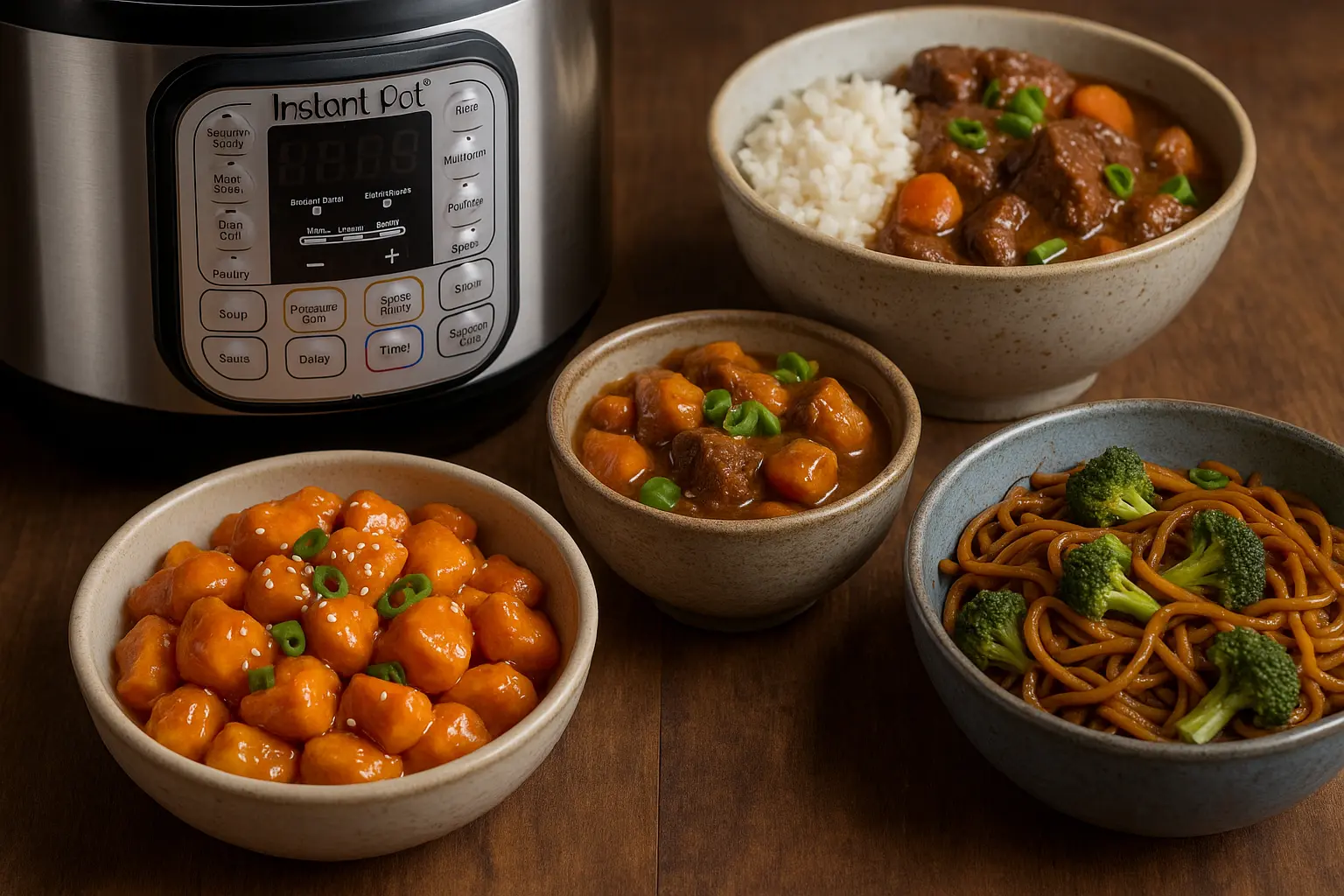
Section 1: Rice – The Heart of Asian Meals
Why Rice Is Essential
Rice is the bedrock of many Asian cuisines. From fluffy Japanese sushi rice to fragrant Thai jasmine or hearty Indian basmati, each variety serves a different culinary purpose. Traditionally, rice requires careful rinsing and monitoring, but in the Instant Pot, it becomes almost foolproof.
Instant Pot Basics for Rice
Water Ratios: Generally, a 1:1 ratio works for most white rice varieties. For brown rice, aim for 1:1.25 or 1:1.5.
Timing: White rice cooks in 3–5 minutes (plus natural release), while brown rice may take 22–25 minutes.
Texture Control: If you prefer softer rice for curries, add slightly more water.
Asian-Inspired Variations
Japanese Sushi Rice – Add a splash of rice vinegar, sugar, and salt after cooking. Perfect for poke bowls or sushi nights.
Thai Coconut Rice – Replace half the water with coconut milk, add a pinch of salt and sugar. Complements curries beautifully.
Chinese Fried Rice Base – Cook plain jasmine rice, chill overnight, then stir-fry quickly for a next-day meal.
Indian Jeera Rice – Add ghee, cumin seeds, and a bay leaf before pressure cooking for an aromatic staple.
Gluten-Free & Meal Prep Tips
Naturally gluten-free, rice is the safest base for Asian-inspired meals.
Make larger batches and portion them into freezer-safe bags for quick reheating.
Section 2: Broths and Soups – Building Layers of Flavor
Why Broth Is a Staple
A rich broth is the backbone of many Asian dishes. Whether it’s a soothing Japanese miso soup, a deep Chinese bone broth, or a spicy Thai tom yum, broths are building blocks for noodles, curries, and even rice bowls.
Instant Pot Broth Advantage
The Instant Pot extracts flavor in a fraction of the time compared to stovetop simmering. Bones, vegetables, and spices release their depth quickly under pressure.
Key Recipes
Japanese Dashi-Inspired Broth
Kombu (kelp) + dried shiitake mushrooms, steeped in water, then pressure cooked.
Use as a base for ramen or miso soup.
Chinese Chicken Bone Broth
Chicken carcass, ginger, scallions, and star anise.
Rich, warming, and ideal for noodle soups.
Thai Tom Yum Broth
Lemongrass, galangal, kaffir lime leaves, and chili.
Can be paired with shrimp, tofu, or mushrooms.
Indian Lentil Broth (Dal Soup)
Split yellow lentils, turmeric, garlic, and curry leaves.
Nutritious and comforting.
Gluten-Free Notes
Avoid soy sauce if needed—use tamari or coconut aminos. Always double-check stock cubes or pre-made pastes.
Section 3: Curries – The Ultimate Comfort Food
Why Curries Work So Well in Instant Pot
Curries are flavor-layered dishes that often require hours of simmering. With pressure cooking, tough meats tenderize quickly, and spices infuse deeply.
Classic Asian Curry Staples
Indian Chicken Curry – Onions, tomatoes, garlic, ginger, garam masala. Ready in 30 minutes.
Thai Green Curry – Coconut milk, green curry paste, Thai basil, eggplant. Balanced with lime juice.
Japanese Curry (Kare Raisu) – Mild, comforting curry with carrots, potatoes, and beef or chicken. Thickened with cornstarch for gluten-free.
Malaysian Rendang-Inspired Curry – Rich, spiced coconut beef stew.
Tips for Curries in Instant Pot
Sauté Mode First: Bloom spices in oil before pressure cooking.
Coconut Milk Timing: Add at the end to prevent curdling.
Thickening: Cornstarch slurry or mashed potatoes keeps it gluten-free.
Meal Prep Advantage
Curries taste even better the next day, making them ideal for batch cooking.
Section 4: Noodles – Quick Comfort in a Bowl
Instant Pot and Noodles
Noodle dishes usually require separate boiling, but the Instant Pot can cook noodles directly in broth or sauce.
Asian Noodle Staples
Chinese Lo Mein – Cook noodles with soy sauce, garlic, and veggies under pressure. Finish with sesame oil.
Japanese Ramen (Shortcut Style) – Use Instant Pot broth + quick-cook noodles. Add toppings: egg, seaweed, pork belly.
Thai Pad See Ew (Stir-Fry Noodles) – Slightly trickier, but you can cook rice noodles in broth and finish sautéing.
Vietnamese Pho (Shortcut) – Pressure cook beef bones, then add rice noodles. Top with herbs and lime.
Gluten-Free Note
Opt for rice noodles or buckwheat soba for naturally gluten-free options.
Section 5: Protein Staples – Chicken, Tofu, Beef, and Seafood
Why Protein Cooking in Instant Pot Saves Time
Asian proteins often rely on marinades and slow cooking for tenderness. Pressure cooking reduces the time without sacrificing flavor.
Recipes to Keep in Rotation
Chinese Soy-Braised Chicken Thighs – Use tamari for gluten-free.
Japanese Miso Salmon – Steam gently in the Instant Pot with miso glaze.
Indian Dal with Tofu or Paneer – Plant-based protein paired with spiced lentils.
Korean Beef Bulgogi-Inspired Stew – Sweet-salty beef dish with onions and sesame.
Tips for Best Results
Use natural release for meat to keep it juicy.
For tofu, pressure cooking + sauté creates a firm but tender bite.
Section 6: Side Staples – Vegetables and Small Plates
Instant Pot-Friendly Sides
Chinese Garlic Green Beans – Quick sauté, 1 minute pressure cook.
Japanese Simmered Daikon – Cooked in dashi for umami depth.
Thai Sticky Rice with Mango (Dessert-Side) – Easy in Instant Pot.
Indian Chana Masala (Chickpeas) – Pressure cooking chickpeas saves soaking time.
Gluten-Free & Vegan Friendly
Most of these sides are naturally gluten-free and vegan, making them versatile for mixed diets.
Section 7: Meal Planning With Instant Pot Staples
Batch Cooking Strategy: Make big portions of rice, broth, and curry bases for the week.
Mix & Match: Pair coconut rice with Thai curry one night, then leftover rice with stir-fry the next.
Freezer Friendly: Broths, curries, and rice freeze beautifully.
Healthy Eating: By controlling oil, salt, and sauces, you make restaurant-quality food lighter and cleaner.
Section 8: Pantry Staples for Asian Instant Pot Cooking
Keep these on hand for versatility:
Coconut milk
Tamari (gluten-free soy sauce alternative)
Curry pastes (green, red, yellow)
Dried shiitake mushrooms
Rice noodles
Garlic, ginger, lemongrass
Chili pastes (gochujang, sambal oelek)
Section 9: Troubleshooting Instant Pot Asian Recipes
Burn Warning: Add extra liquid for tomato-heavy curries.
Overcooked Noodles: Cook separately if unsure.
Too Thin Curries: Always thicken at the end with cornstarch slurry.
Bland Flavor: Don’t skip sauté mode—blooming spices changes everything.
Conclusion: Bringing Asian Staples to Your Table
With the Instant Pot, Asian-inspired staples no longer require hours in the kitchen or advanced techniques. By learning these building-block recipes—rice, broths, curries, noodles, proteins, and sides—you create a flexible, nourishing, and exciting meal plan.
These recipes not only save time but also let you explore the diversity of Asian cuisines from your own kitchen. Whether you’re craving Japanese ramen, Indian dal, Thai curry, or Chinese soy-braised chicken, the Instant Pot is your shortcut to authentic flavor without compromise.
The beauty of staples is in their adaptability. Master these foundations, and you’ll find countless ways to remix and reinvent them—ensuring your dinners stay exciting, healthy, and deeply satisfying.
Leave a comment
Your email address will not be published. Required fields are marked *


